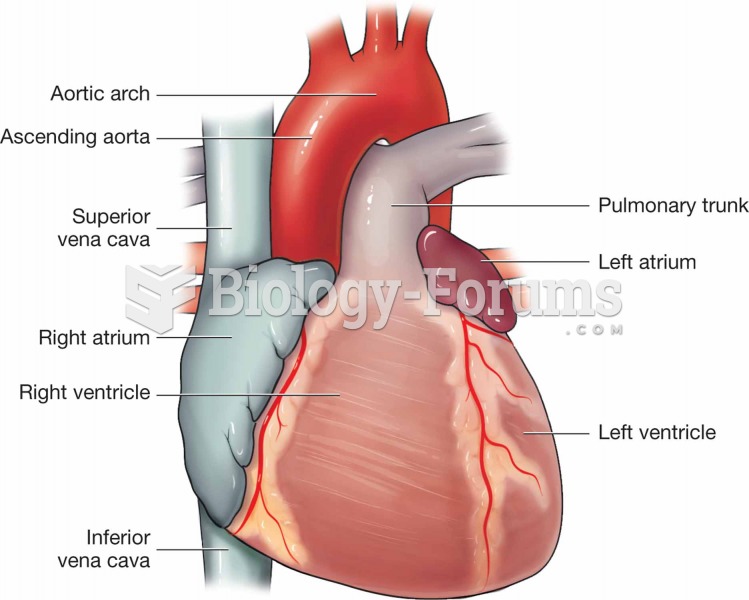Answer to Question 1
Correct Answer: 2
Rationale 1: It interferes with the conduction system of the heart is incorrect because cholesterol does not damage the heart muscle nor does it interfere with the conduction system of the heart.
Rationale 2: Circulating cholesterol binds to vessel walls, increasing plaque buildup through the years. The greater the amount of cholesterol circulating in the blood, the greater is the risk of cardiovascular disease.
Rationale 3: It thickens the blood, causing clots is incorrect because lipoproteins are transported freely throughout the blood, but they do not make the blood clot quicker.
Rationale 4: It damages the heart muscle is incorrect because cholesterol does not damage the heart muscle nor does it interfere with the conduction system of the heart.
Global Rationale: Circulating cholesterol binds to vessel walls, increasing plaque buildup through the years. The greater the amount of cholesterol circulating in the blood, the greater is the risk of cardiovascular disease. It interferes with the conduction system of the heart is incorrect because cholesterol does not damage the heart muscle nor does it interfere with the conduction system of the heart. It thickens the blood, causing clots is incorrect because lipoproteins are transported freely throughout the blood, but they do not make the blood clot quicker. It damages the heart muscle is incorrect because cholesterol does not damage the heart muscle nor does it interfere with the conduction system of the heart.
Answer to Question 2
Correct Answer: 3
Rationale 1: Nitrous oxide is rarely used in any setting is incorrect because it is often used for dental procedures.
Rationale 2: Nitrous oxide is often used for local anesthesia is incorrect because local anesthesia is not often used for dental procedures.
Rationale 3: Nitrous oxide is often used for dental procedures.
Rationale 4: General anesthesia is not often used for dental procedures; therefore, this is incorrect.
Global Rationale: Nitrous oxide is often used for dental procedures. Nitrous oxide is rarely used in any setting is incorrect because it is often used for dental procedures. Nitrous oxide is often used for local anesthesia is incorrect because local anesthesia is not often used for dental procedures. General anesthesia is not often used for dental procedures; therefore, this is incorrect.







